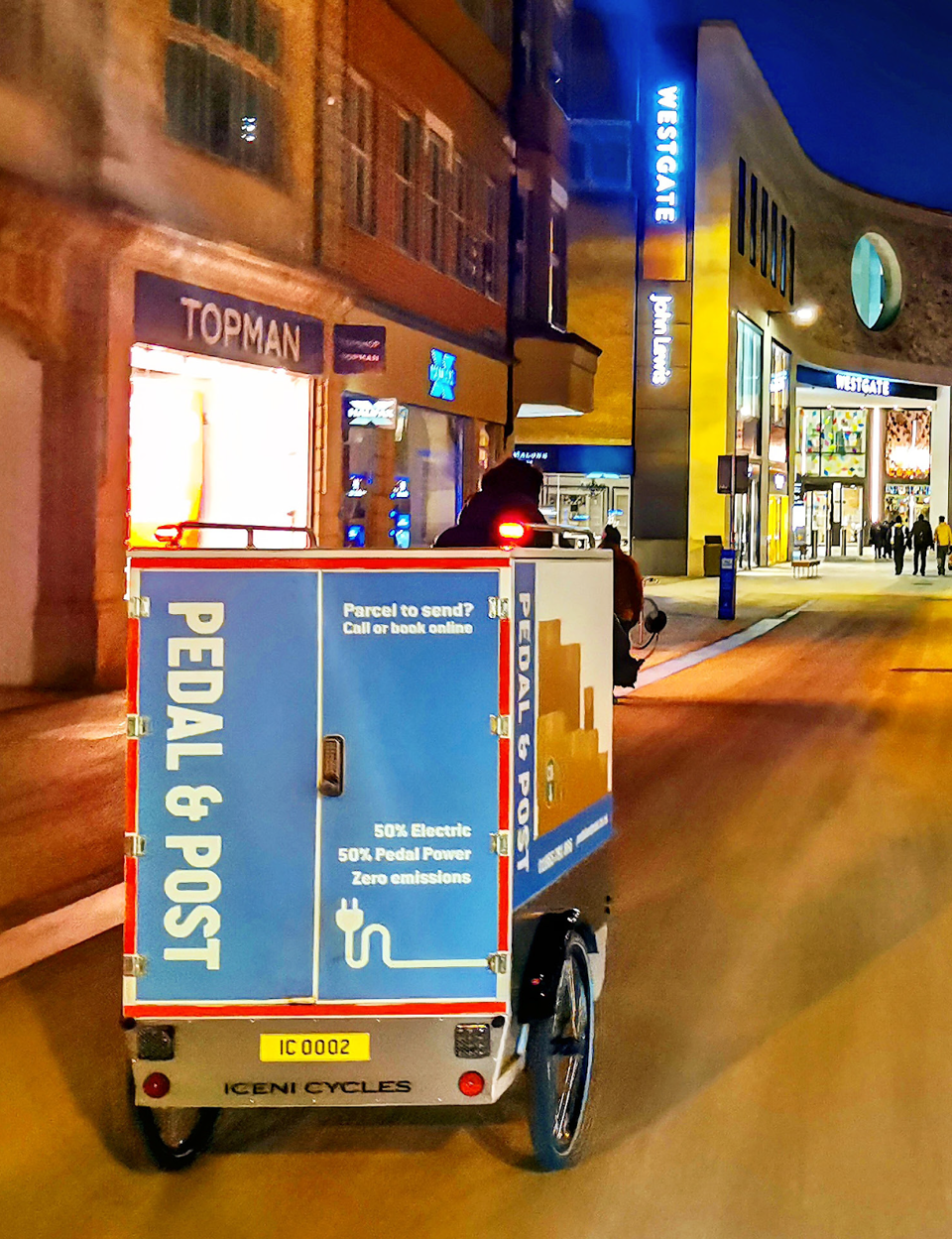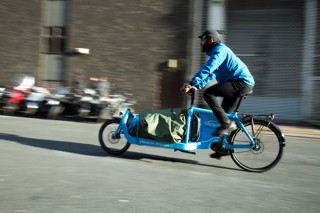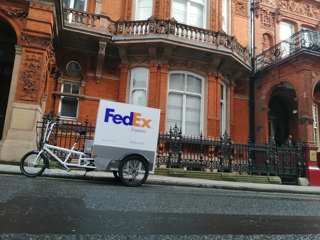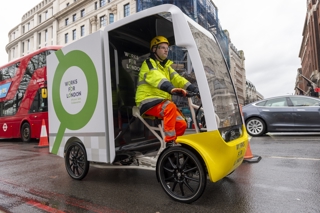New analysis suggests that if delivery companies switched to using cargo bikes instead of diesel vans for first and last-mile deliveries, it would save the NHS and other Government services more than £4 billion.
The cost savings, claimed by cargo bike delivery firm Pedal and Post, are derived from savings from reduced congestion, less air pollution, better health outcomes for riders, and fewer accidents and greenhouse gas emissions.
Chris Benton, the CEO of Pedal and Post, which commissioned the research, said: “The potential to clean up our air and grow the UK economy is huge.
“Pollution from diesel van deliveries costs the NHS nearly £25,000 across the lifetime of the van, compared to around £150 for an electric cargo bike.”
Founded in 2013 by Christopher Benton, the eco-delivery company currently delivers 1,000 parcels a day across the city, employing 23 people.
It says that 100,000 van miles are saved every year by Pedal and Post’s fleet in Oxford.
Social and environmental externality costs of diesel and electric vans and cargo bikes (in pence per mile)
| Environmental or social impact |
Diesel vans |
Electric vans | Cargo bikes |
| Congestion | 27.5700 | 27.5700 | 5.1700 |
| Health | 13.9100 | 13.9100 | 0.0000 |
| Air pollution | 8.5200 | 0.4300 | 0.0000 |
| Accidents | 4.6500 | 4.6500 | 2.3400 |
| Infrastructure costs | 3.1600 | 3.6300 | 0.0001 |
| Climate change | 3.1200 | 1.2000 | 0.2600 |
| Noise | 2.8800 | 0.8900 | 0.0000 |
| Water pollution | 2.8800 | 2.1000 | 0.0000 |
| Total social costs (pence per mile) | 66.6 | 54.4 | 7.8 |
Source: Pedal and Post - data taken from 'Delivering Value - A quantitative model for estimating the true cost of freight via three transport modes', Just Economics November 2022.
The Pedal and Post claim about potential taxpayer savings comes in the wake of Transport for London (TfL) launching its first-ever cargo bike action plan.
The plan aims to promote cargo bike use and address barriers that inhibit or prevent a shift from vans to cargo bikes.
It includes developing a London safety standard for cargo bikes that adopts best practice; exploring opportunities to provide space, such as micro-hubs and parking to support last mile cargo bike operations; and monitoring where key cargo bike routes are across the city to identify usage patterns and project future growth
The plan also targets procurement policies to support further cargo bike uptake; ensuring adequate and suitable capacity for cargo bikes when designing future TfL cycling schemes; and providing businesses with the tools and information they need to feel able to make the switch to cargo bikes.
























Login to comment
Comments
No comments have been made yet.